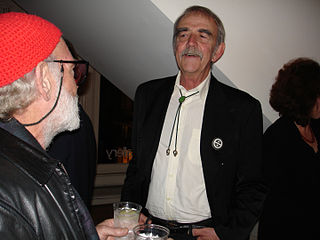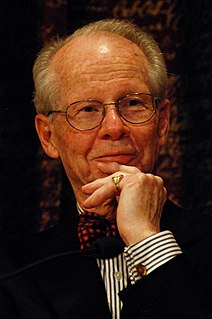A Quote by Marshall McLuhan
Appetite is essentially insatiable, and where it operates as a criterion of both action and enjoyment (that is, everywhere in the Western world since the sixteenth century) it will infallibly discover congenial agencies (mechanical and political) of expression.
Related Quotes
I believe there are a lot of questions today that require expert analysis by various agencies: political agencies, foreign ministries, economic agencies and security agencies. We need to assess everything and understand what we can agree on and what the implications will be both for Japan and for Russia so that both the Russian people and the Japanese people come to the conclusion that these compromise solutions are acceptable and are in our countries' interests.
How long it will take until we get to a Golden Age where everybody's perfectly in tune with God's will, I don't know; but because of Prabhupada, Krishna consciousness has certainly spread more in the last sixteen years than it has since the sixteenth century, since the time of Lord Caitanya. The mantra has spread more quickly and the movement's gotten bigger and bigger.
The decision for complete religious freedom and for separation of church and state in the eyes of the rest of the world was perhaps the most important decision reached in the New World. Everywhere in the western world of the 18th century, church and state were one; and everywhere the state maintained an established church and tried to force conformity to its dogma.
[Action's] a Western thing. We think of the hero going into battle, rebelling against a government or an oppressor, but [in KUNDUN] action is nonaction or what appears to be nonaction. That's a hard concept for Western audiences. . . . We wanted to show a kind of moral action, a spiritual action, an emotional action. Some people will pick up on it; some won't.
There ought not be two histories, one of political and moral action and one of political and moral theorizing, because there were not two pasts, one populated only by actions, the other only by theories. Every action is the bearer and expression of more or less theory-laden beliefs and concepts; every piece of theorizing and every expression of belief is a politcal and moral action.
The American taxing structure, the purpose of which was to serve the people, began instead to serve the insatiable appetite of government. If you will forgive me, you know someone has once likened government to a baby. It is an alimentary canal with an appetite at one end and no sense of responsibility at the other.
As electricity is a great power in the world, so the inner mind is the greatest power available to you. Neither operates independently; both depend upon a separate agency to ignite them to action, and both bring helpful or harmful results according to the wisdom or ignorance with which they are directed.
Given that the nineteenth century was the century of Socialism, of Liberalism, and of Democracy, it does not necessarily follow that the twentieth century must also be a century of Socialism, Liberalism and Democracy: political doctrines pass, but humanity remains, and it may rather be expected that this will be a century of authority ... a century of Fascism. For if the nineteenth century was a century of individualism it may be expected that this will be the century of collectivism and hence the century of the State.
The remediableness criterion is an effort to deal symmetrically with real world institutions, both public and private, warts and all. The criterion is this: an extant mode of organization for which no superior feasible form of organization can be described and implemented with expected net gains is presumed to be efficient.





































